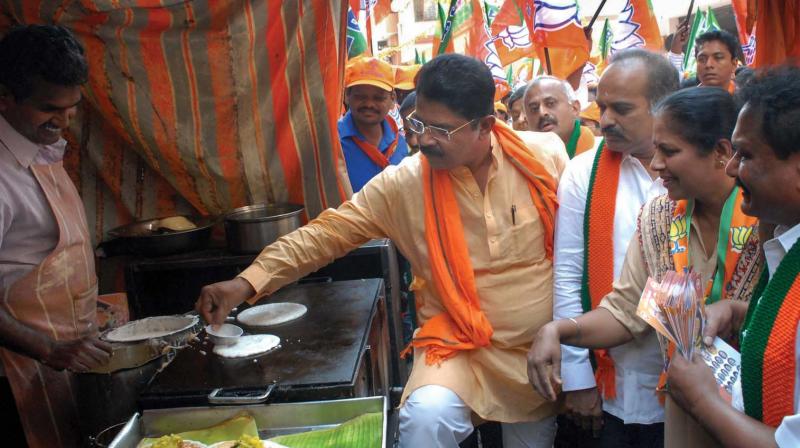Making swayamvaram of Indian elections
Our country had a charming, ancient matrimonial custom known as swayamvaram'.

The good and bad about us is that we get used to anything, if exposed for long enough. But that is no proof that it is good for us. We get used to drinking alcohol or smoking tobacco, we begin to enjoy it, but that’s no proof that it is good for us.
In the recent years we have got used to national leaders talking ill of each other. I doubt if we can recall a single instance in which a leader said something neutral, leave alone laudatory, about his political rivals. On the contrary, you can recall a tsunami of instances in which leaders revelled in speaking ill of rivals. In a short span of time this has become so familiar a fashion that audiences now tend to feel disappointed if speakers don’t rain acid on their rivals. As a matter of fact, the more ‘powerful’ a speaker, the more vitriolic the attack is expected to be each time. Well, we say, “all is right in love and war”. Elections are, after all, wars of sorts. So, why bother? Opinions could vary on whether or not elections, in a democratic polity, should be cast in the mould of wars. So, let us keep that instance aside for the time being and consider its more humane counterpart –love. Is everything, any measure, right and legitimate in love?
Our country had a charming, ancient matrimonial custom known as ‘swayamvaram’. The bride chooses, from among a row of suitors assembled, a groom of her liking. Here we have a classic case of competition. The suitors compete among themselves in a healthy fashion to win the heart of the bride-to-be. They do so by presenting themselves in their best claims and charms. No one thinks of showing himself up by showing the others down. No one tries to forestall competition by poisoning the rest of the competitors or ambushing them on the way! No one tries to gain an inch by maligning rivals. Now, substitute the bride-to-be with the Indian voter, with various political parties as suitors. Election is a situation of competition. Should competition be vitiated by malice and calumny? Why can’t our democratic, electoral suitors win our hearts and minds by charming us with their special endowments and achievements, rather than sour our minds with gall and wormwood about others? Why should this new trend in electoral competitions worry us? Well, for a couple of very weighty reasons.
First, this trend is blatantly unnatural. Consider nature. What we see there is a blend of competition and cooperation. When cooperation is excluded from competition, we are left with unsustainable violence and cruelty that endangers the viability of nature. For every eagle or owl that takes to the solitary mode of life, there are hundreds of species of birds that live on the model of cooperation. Nowhere in nature do we have a model in which an animal gains a mate by calumniating or cunningly disadvantaging its rivals. It gains by proving its intrinsic, not comparative, merit. If this logic holds, it is crystal clear that the present model of electioneering is incompatible with good governance and the welfare of the people.
Secondly, we should be concerned about the felicity of our national character. Courtesies are as basic in the public sphere as they are the inter-personal, or domestic, space. If five children in a home were to conduct themselves towards each other the way our political leaders talk in public about their rivals, we would reprimand and chastise them readily. We would do that, for their own good! In olden days, school students used to be required to take a pledge every day. It said, “India is my country. All Indians are my brothers and sisters.” We grew up believing that. If all Indians are my brothers and sisters, India is not only my country, but also my home. In this vast and wonderful home, we share a profound prayer: lead us from darkness to light!
(The writer is a former principal of St Stephen’s College, Delhi)

